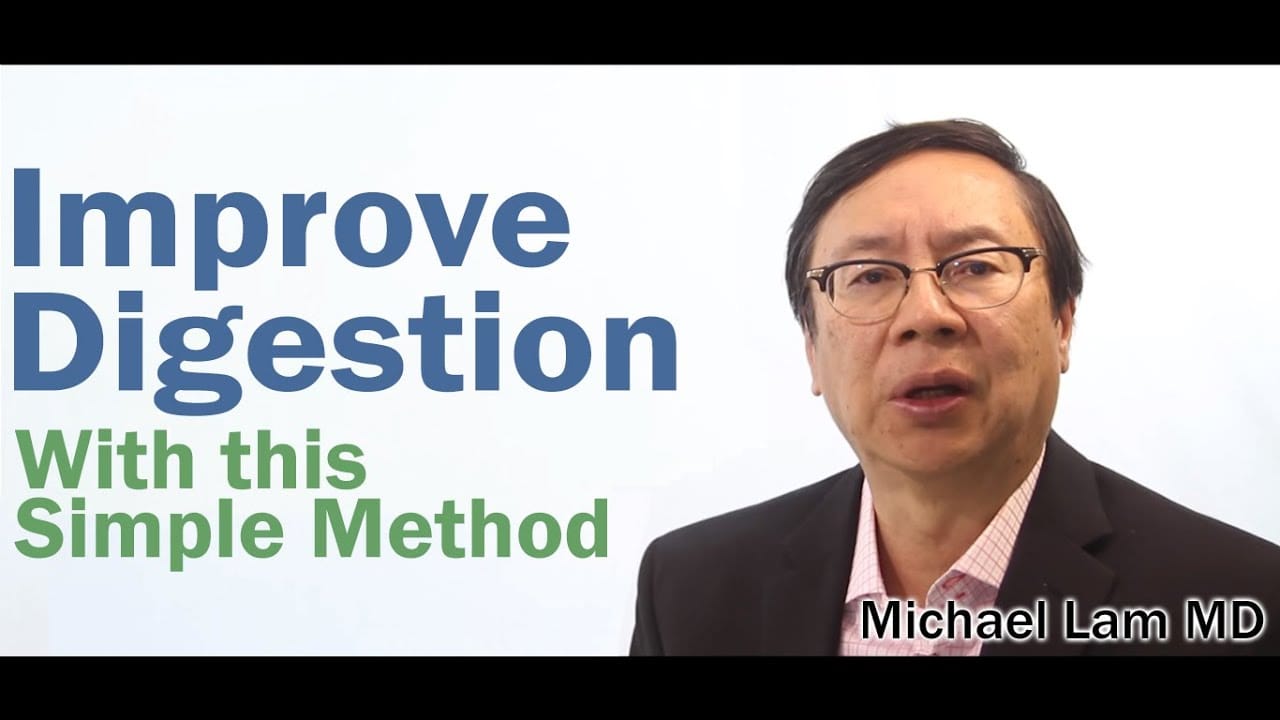
 You probably don't think very much about chewing. When most people eat they are in a hurry to get back to work, talking, watching TV, or on their phone. A lot of these distractions and rushed eating can actually lead to habits where you naturally chew quickly without even giving it a second thought. Chewing is also called mastication, and most people overlook its value when it comes to obtaining healthy digestion the natural way.
You probably don't think very much about chewing. When most people eat they are in a hurry to get back to work, talking, watching TV, or on their phone. A lot of these distractions and rushed eating can actually lead to habits where you naturally chew quickly without even giving it a second thought. Chewing is also called mastication, and most people overlook its value when it comes to obtaining healthy digestion the natural way.
Obviously one of the biggest reasons we chew is to break down food from something that is big into smaller more manageable components. Food that is broken down is much easier for the body to digest and absorb than food that is has not properly been chewed and is left in larger segments. When food is not properly digested it may end up entering the bloodstream. This doesn't sound good, and it isn't, as it leads to certain health problems.
Healthy digestion the natural way begins with slowly down the eating process itself. Taking smaller bites, chewing slowly and completely, and learning to take time to eat. There are many digestive issues associated with eating too quickly. These range from indigestion to gastrointestinal disorders, as well as overeating and resulting obesity related illnesses. Learning to slow down will help assist the body in healthy digestion the natural way.
The digestive process begins in the mouth, and this goes beyond just chewing. Saliva is a very important component when it comes to digesting, and in fact it even contains digestive enzymes. One of these enzymes is called lingual lipase and it primarily targets the breakdown of fats. The longer you chew, the more time your saliva can have to begin breaking down and digesting food. Saliva also acts as a lubricant so that food moves more smoothly down the esophagus.
Digesting food is not an easy process for the body. A lot of different components go into healthy digestion the natural way and it takes time and energy. The harder food is to break down, the more challenging this job is for the body. Chewing breaks that food down smaller, exposes it to more saliva which is contains digestive elements, and partially liquefies the food. When food is left undigested in the body and it ends up in larger pieces in the intestines it will have to be broken down by the bacteria in the gut. Because the food is putrefying it may lead to gas, bloating, and abdominal pain.
 Eating slower, as opposed to eating faster, can actually be a very good thing for your weight. Eating slower helps you to consume less calories and thus can promote weight-loss. Chewing your food longer directly correlates to portion control, thus you will find yourself eating less than you otherwise would. When you eat slower you tend to feel fuller sooner, that is, before you have eaten quite as much. This is because it takes around 20 minutes for your brain to register the sensation of being full. When you chew longer you give your body a chance to register how much food is already in your stomach. Slow down on your food and chew better and you may end up consuming about 10% fewer calories than normal.
Eating slower, as opposed to eating faster, can actually be a very good thing for your weight. Eating slower helps you to consume less calories and thus can promote weight-loss. Chewing your food longer directly correlates to portion control, thus you will find yourself eating less than you otherwise would. When you eat slower you tend to feel fuller sooner, that is, before you have eaten quite as much. This is because it takes around 20 minutes for your brain to register the sensation of being full. When you chew longer you give your body a chance to register how much food is already in your stomach. Slow down on your food and chew better and you may end up consuming about 10% fewer calories than normal.
Chewing food better and longer means stronger teeth. Your teeth are comprised of bones which hold them together, and when you chew you exercise these bones in a way that is healthy for them. The saliva that comes along with chewing food is also good for keeping your teeth clean and fighting tooth decay and plaque.
Of course, taking a little extra time to chew your food also means enjoying it more. Humans were not made to devour our meals, but to dine. This means experiencing the taste and texture of your meals to a bigger degree.
Adrenal fatigue is the body’s ultimate response to stress. After its normal compensation mechanisms have been exhausted, the body downregulates its energy expenditure and reacts negatively to stressors. Taking the time to chew and enjoy your food might not seem like a great deal, but for a body overwhelmed by stress in adrenal fatigue, it can make all the difference.
Digestion and assimilation of food actually takes a great deal of energy and resources, which can be a stressor on the body. In fact, some sufferers in advanced stages of adrenal fatigue become tired when eating, and may even need to rest between bites. Chewing properly and pacing your meal makes the food easier for your body to deal with. Any way you can help your body experience less stress will ease recovery. Remember that the process of chewing activates a host of digestive enzymes both in the mouth and in the gut that prepares the body to welcome the food and break it down in the most efficient way possible. Energy saved can mean the difference between having energy for normal daily activities or being bedridden in those who are in advanced stages of AFS. Most people do not factor this in their meal protocol.
Keeping your teeth clean is another factor that can make recovery from adrenal fatigue a smoother experience. Bacteria living in an inadequately clean mouth can form plaques on the teeth. In addition to causing problems in the mouth, these organisms can also slowly create toxins over time as a result of their presence that have imperceptible negative effects on the body. This toxin load may not be noticeable to healthy individuals, but can complicate the extracellular matrix (ECM) congestion and toxin overload problems that many adrenal fatigue sufferers have.
When it comes to the optimal recovery, what you eat is just as important as how you eat it. Chewing thoroughly and taking time to enjoy your meals is an easy technique to introduce into your life that can have great health boosting benefits for both healthy people and sufferers of adrenal fatigue.

